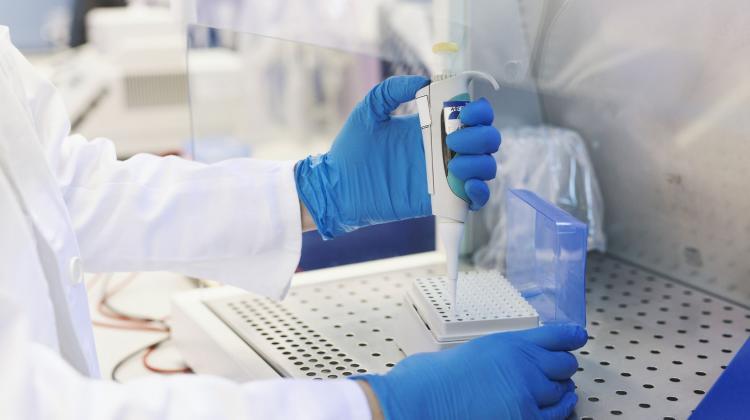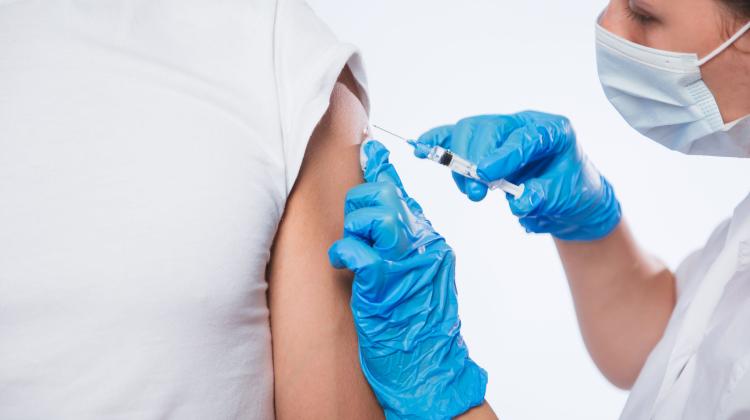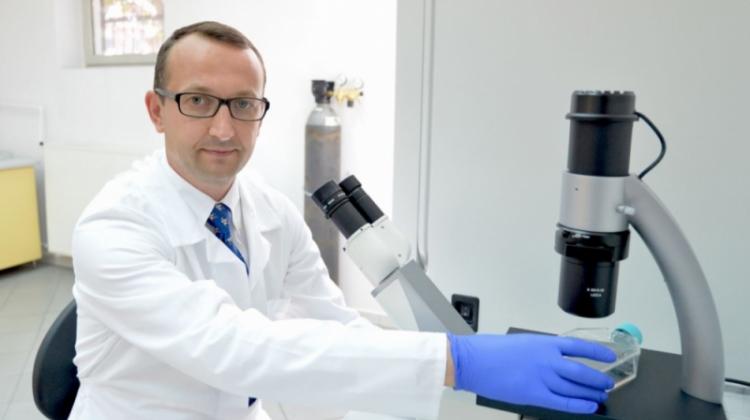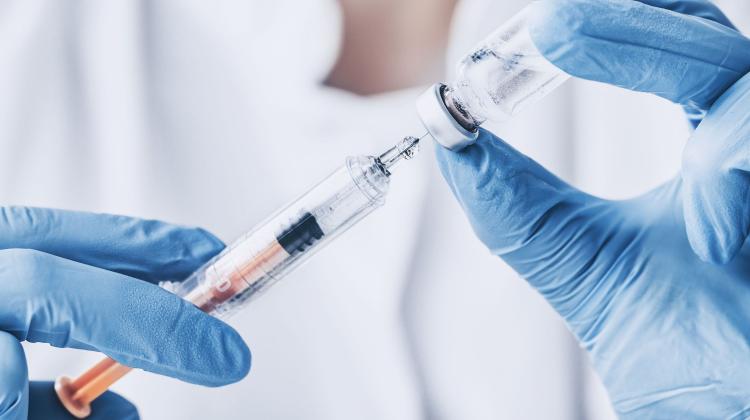Professor Andrzej Mackiewicz: We are working on SARS-CoV2 vaccine that also treats
 Credit: Fotolia
Credit: Fotolia
Scientists in Poznań are working on a vaccine against SARS-CoV2, which would provide immunity to healthy people and replace the therapy for the infected.
Team leader Professor Andrzej Mackiewicz, head of Cancer Diagnosis and Immunology at the Greater Poland Cancer Centre in Poznań and head of the Department of Medical Biotechnology at the Poznan University of Medical Sciences, told PAP: “Our vaccine works similarly to the virus itself in order to destroy it in the body.”
PAP: You are working on a vaccine against COVID-19, which differs from both traditional and new preparations based on RNA and DNA. What is this technology?
Professor Andrzej Mackiewicz: This is a completely different, next generation vaccine. It is a bit more complicated, but it has special advantages. First of all, it activates a broader spectrum of the human immune response. Our vaccine otherwise triggers an additional cellular response. It stimulates the cells that destroy the virus, or more precisely, destroy cells already infected with the virus. So it works more like a virus than other preparations.
PAP: Why is it important?
AM: According to a Swedish study, half of those who recovered from COVID-19 had no coronavirus antibodies at all. This shows the importance of the cellular response. This is so important that research is currently being carried out on administering cells taken from convalescents instead of antibodies to patients.
PAP: How does your vaccine work?
AM: I can say that it partly uses the cancer vaccine technology we developed years ago. I cannot reveal any details due to the protection of intellectual property.
PAP: So when it comes to fighting viruses, the technology is even newer than mRNA-based vaccines?
AM: Yes. Remember that although vaccines using mRNA have only just been introduced during the pandemic, they have been studied for about 20 years. Their advantages include high production speed and relatively low cost compared to more complex structures, including structures such as ours.
PAP: What is the safety level of your invention?
AM: You can say that we are certain of the safety of our vaccine. Of course, the necessary research still needs to be carried out, but we have already administered 40,000 doses of melanoma vaccine. Only in one case there was a short-term allergic reaction.
PAP: What is the current status of your work?
AM: We are in the phase of animal testing. The technology and factory are ready. Having the necessary funds, we could run production and start clinical trials in parallel. We even have a different plan to conduct phase 3 clinical trials than the traditional one that requires the involvement of 30 or 40,000 volunteers. With our method, much less of them would be needed.
PAP: Can you say more about these plans?
AM: As I mentioned, it all depends on the funds. Unfortunately, when the government purchased foreign vaccines, investors' interest in our technology decreased. Everyone thinks that the problem is solved. But that's not necessarily true. A few days ago, one of the companies suspended research due to low effectiveness. Additionally, we are working on using our vaccines not only in prevention, but also in treatment.
PAP: What does it mean?
AM: We use our cancer vaccines in sick people as a method of treatment. Now we are also committed to developing a therapeutic vaccine against COVID-19. The mechanisms of this infection, however, are quite complicated, so we must be very careful in order to help the patients and not harm them.
PAP: What are the chances of marketing your product? Can you define them?
AM: It depends on how you understand it. If we are talking about a product available for sale - some time has to pass. As for the administration of the preparation to humans in clinical trials, with adequate funding, it could be available in a few months.
PAP: In the meantime, new variants of the virus emerge. What is the risk that your and other vaccines will eventually fail to work against them?
AM: This is a general problem that can affect all vaccines. But in the case of our preparation, we attack not only the place in the virus that is responsible for penetrating into cells (the spike protein), but most of all the cells the virus has already penetrated. Recent studies show that these new mutations do not reduce efficacy. We hope our vaccine can deal with the mutations, although we cannot be certain.
PAP: Research is carried out intensively. There are many vaccine development teams in the world. How do you assess the chances of success of your preparation?
AM: About 250 groups are currently working on vaccines against SARS-CoV-2. Sixty-eight projects are in the clinical trial phase. In addition to those vaccines already on the market, several more may become available in the near future. Time will tell how effective they will be. For example, we now see that immunity is maintained for at least eight months after infection. Remember that we have only known the disease for a year, so the immunity probably lasts longer. In the case of the first SARS, it was 6 to 11 years.
PAP: Do other groups use an approach similar to your methods?
AM: Not as far as I know. Instead, other methods are being investigated, for example, researchers in India and Brazil use attenuated, killed viruses that patients are injected with. There are also projects that use virus fragments.
PAP: With this amount of projects, can we count on a greater availability of vaccines?
AM: We can see how it works in practice now. It was possible to predict that there might be problems with supplies to Poland because America, probably like every country, wants to secure its citizens first. It is good that the European Union became involved in talks on vaccine supplies. The scale of the problems may increase if it turns out that, for example, due to mutations, we have to vaccinate every year or two.
There are also opinions that the first wave of vaccines is 'combat reconnaissance' and only the next generations will be the final ones.
PAP: People have various concerns about the already available vaccines. One of them is that the code written in mRNA will become integrated into the genome.
AM: There is no such danger for various reasons. Firstly, single-stranded RNA is used, and for something to happen it would have to be double-stranded. Secondly, for this to happen, a properly armed virus would have to be present.
PAP: To sum up, should Poland focus on its own vaccine against coronavirus?
AM: It is a shame that we are just waiting for what will happen in the world. There are many wise people in Poland. We need to create the right conditions for them and give our Polish population a chance for intellectual development.
PAP - Science in Poland
Marek Matacz
mat/ zan/ kap/
tr. RL
Przed dodaniem komentarza prosimy o zapoznanie z Regulaminem forum serwisu Nauka w Polsce.



















